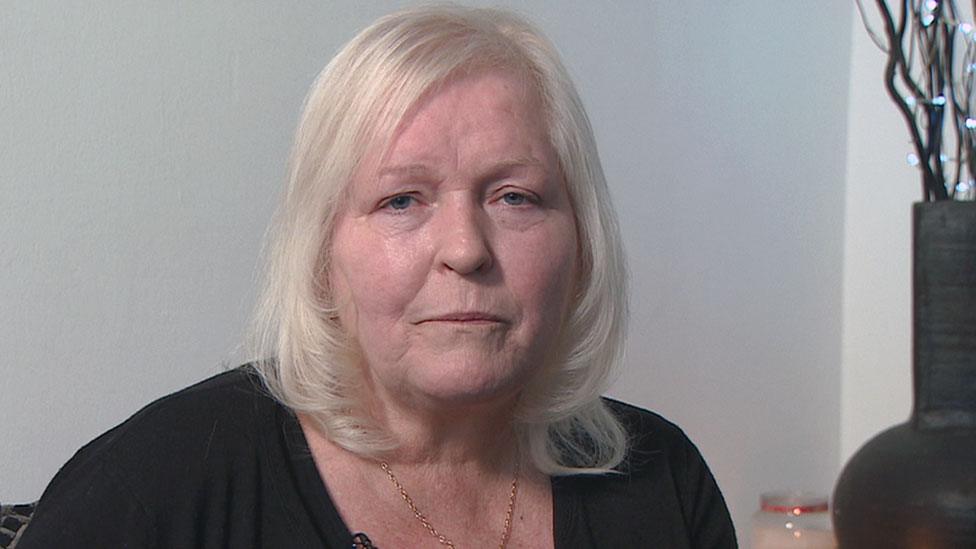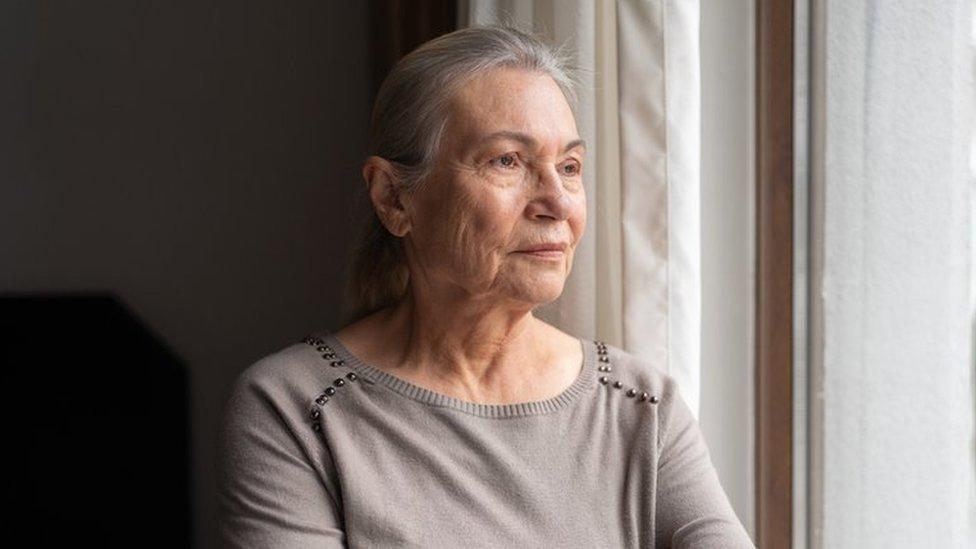Assisted death: 'Let people die with dignity at home'
- Published
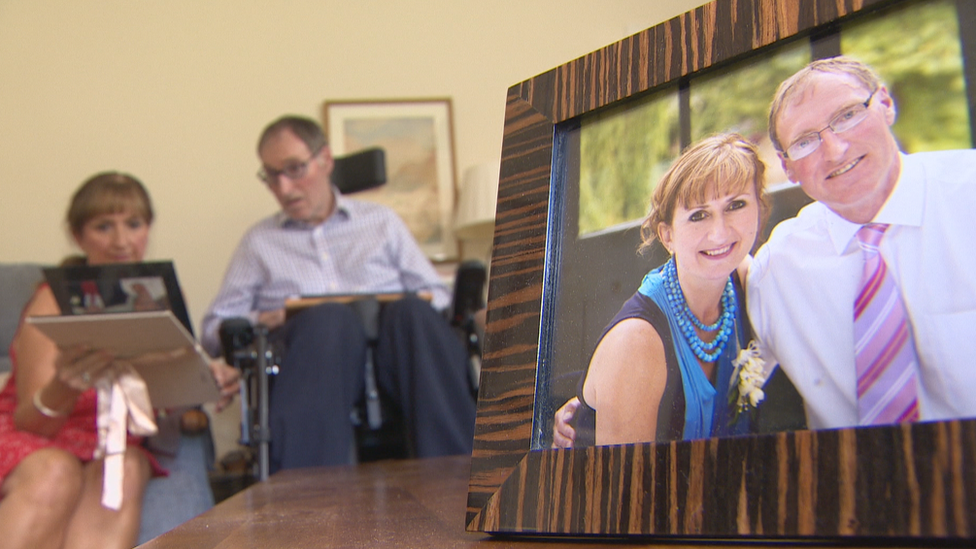
Richard Selley and his wife, Elaine, look back over old photographs in their home in Glenalmond, near Perth
A terminally ill man who is preparing to travel to Switzerland to end his life is calling for assisted death to be legalised in Scotland.
Richard Selley, 65, has chosen to die in Zurich in September after a four-year battle with Motor Neurone Disease.
The former teacher, of Glenalmond, near Perth, described the laws in Scotland as "cruel, outdated and discriminatory".
But opponents have argued that the risks of reform are too high.
One concern is that vulnerable people could be pressured by relatives, or even clinicians, to take an irrevocable decision.
'Prisoner in my body'
Previous attempts to introduce new legislation have failed to get through the Scottish Parliament.
But Mr Selley, who has chosen an assisted death at the Dignitas clinic, will use the last weeks of his life to campaign for reform.
In an open letter to MSPs, published in The Times, external, he reveals his plans to leave Scotland for the last time.
Mr Selley, who was diagnosed with MND in March 2015, wrote: "I have chosen to have an assisted death as I am now fully in the grip of terminal Motor Neurone Disease.
"After four years of decline I am now a prisoner in my body."
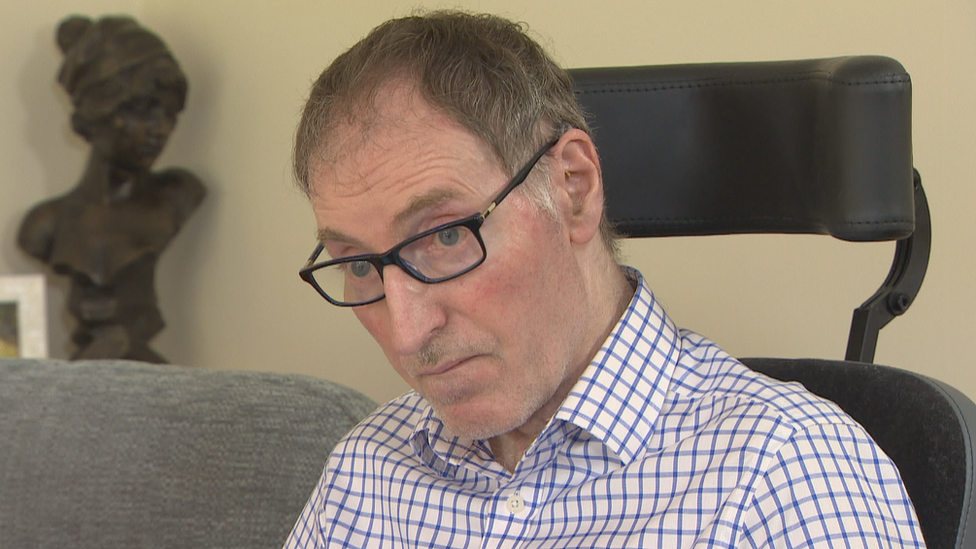
Mr Selley said critics of assisted dying should "spend one day in my shoes"
Mr Selley praised the "outstanding care" he has received and even proved he still has a sense of humour.
He added: "As I enter the final stages of this journey, and the prospect of total paralysis, I have decided that I would prefer to leave this world before too much longer.
"To use the terminology of Brexit, I have had my own little referendum, and decided that I wish to leave rather than remain.
"I don't wish to crash out in an undignified manner, so I am hoping to negotiate a withdrawal agreement that will not require a long transition period."
Mr Selley, who has to talk-type to communicate, told BBC Scotland it will cost about £10,000 to travel to Switzerland to end his life.
He said: "I am fortunate that I can afford this, but most people cannot.
"Having to be able to fly means that I am choosing to die earlier than I would prefer."
Asked what he aims to achieve, Mr Selley said: "I hope that my letter to members of the Scottish Parliament might persuade more of them to support an assisted dying bill in the future.
"I think the momentum for a change in the law is growing.
"It will be too late for me but I hope that some time soon people in my position will have a chance to have a peaceful death at a time of their choosing."
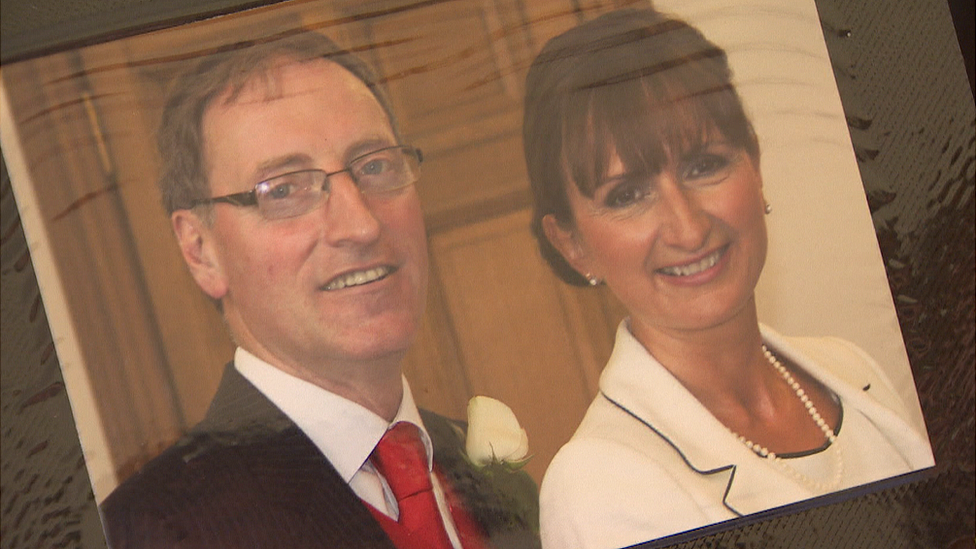
Richard and Elaine have been married since 2011 and have five children between them
Mr Selley also said he would not contemplate an assisted death if his wife, Elaine, was at risk of prosecution.
For that reason he must organise everything, from obtaining medical records to prove he has a terminal illness to booking his final flight.
Mr Selley said: "If I make it to Zurich, I will need to have two interviews with Swiss doctors to show that I am sound of mind and acting of my own free will, and I have to convince Dignitas that I can somehow administer the drug that will end my life.
"As I can no longer swallow, it will need to be done via my feeding tube. I practice the movement required each night."
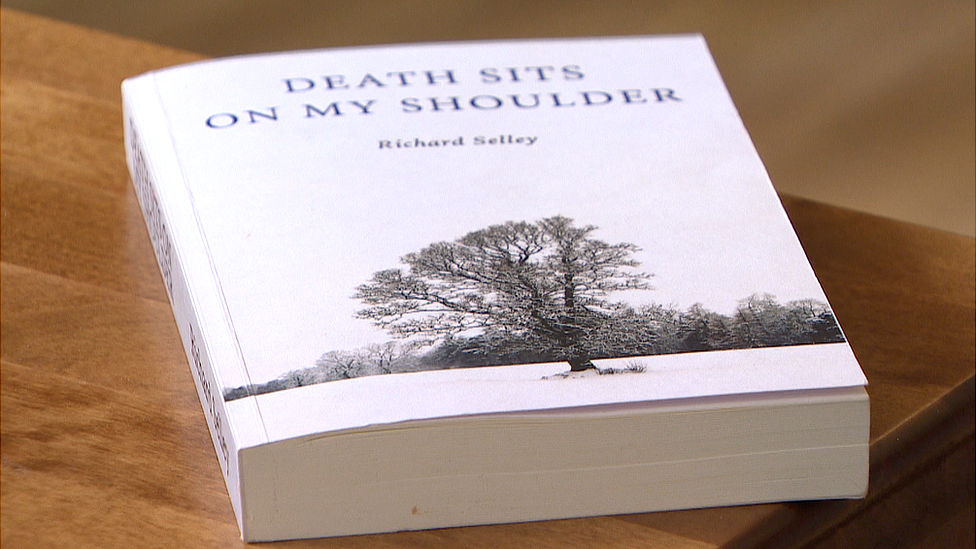
Mr Selley wrote a memoir about his experiences, the proceeds of which will be donated to MND Scotland
His letter to MSPs concluded: "If the choice of an assisted death was available to me here in Scotland so many of my worries would have been eased and my remaining time would have been spent in better ways than burdensome and complex admin. Instead, that precious time would be spent with my wife, my family and my friends.
"The current laws (and lack of laws) around assisted dying in Scotland are cruel, outdated and discriminatory.
"I intend to spend the next eight weeks working with Dignity in Dying Scotland trying to change them."
Mr Selley regularly updates his own blog, Moments with MND, external.
He is also the author of a book, Death Sits on My Shoulders, external, about his life with the progressive and terminal illness, which affects the function of nerves and muscles.
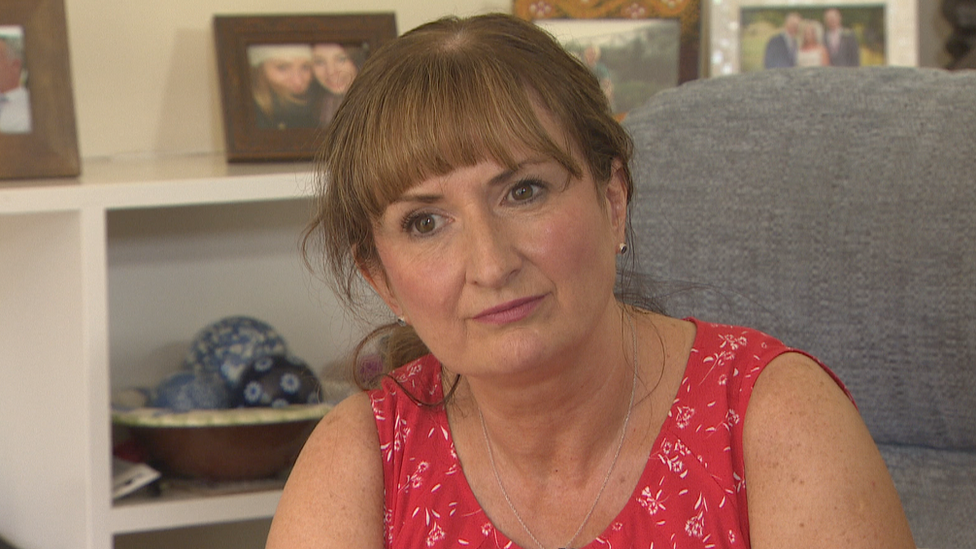
Mrs Selley has watched her husband lose the ability to walk, talk and swallow
His wife, Elaine, said she respects his decision as the condition often leaves him "tormented".
Mrs Selley, a former warden of Glenalmond College, said: "I am spending the last few months of Richard's life watching him die very slowly before my eyes but, as well as that, I am watching him go through this process which is incredibly stressful.
"I would much rather be with friends and family here when it's his time than in a foreign country that's a transactional business arrangement and it's not with the people that I love."
She also believes it should be a "human right" for individuals to end their life at a time of their choosing.
Mr Selley added: "I think if those who oppose assisted dying could spend just one day in my shoes they would change their view."
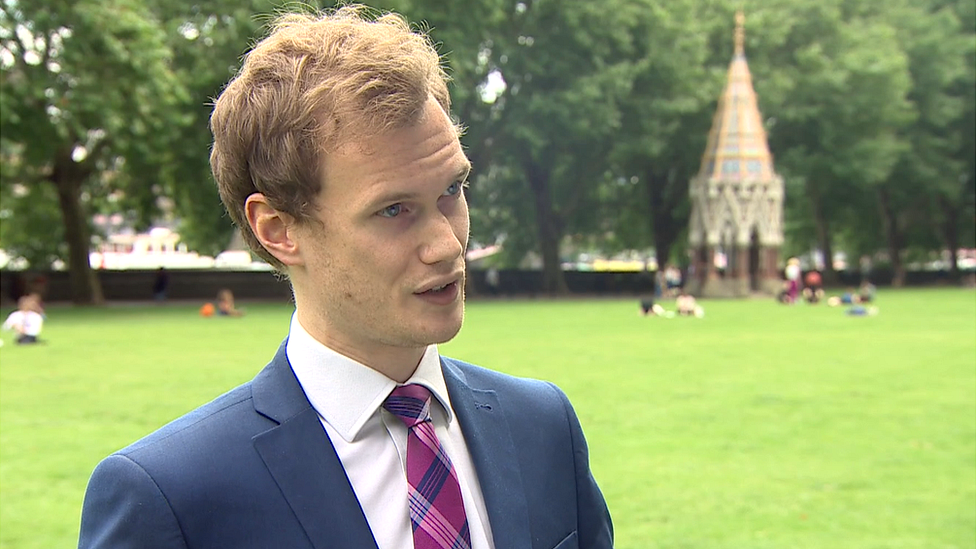
James Mildred, of Christian charity CARE, said assisted dying could prove to be a "slippery slope"
James Mildred, communications manager for Christian charity CARE, said he has enormous sympathy for Mr Selley and his family but warned MSPs would have to consider the "wider societal harms".
He said: "There is no way that we could have a law that is entirely safe from abuse and exploitation.
"This is also about making sure that people don't think they are a burden.
"We are deeply concerned that any assisted suicide legislation would put pressure on thousands upon thousands of elderly men and women and all of a sudden the right to die will become a duty to die.
"That is not something we should be doing as a society."
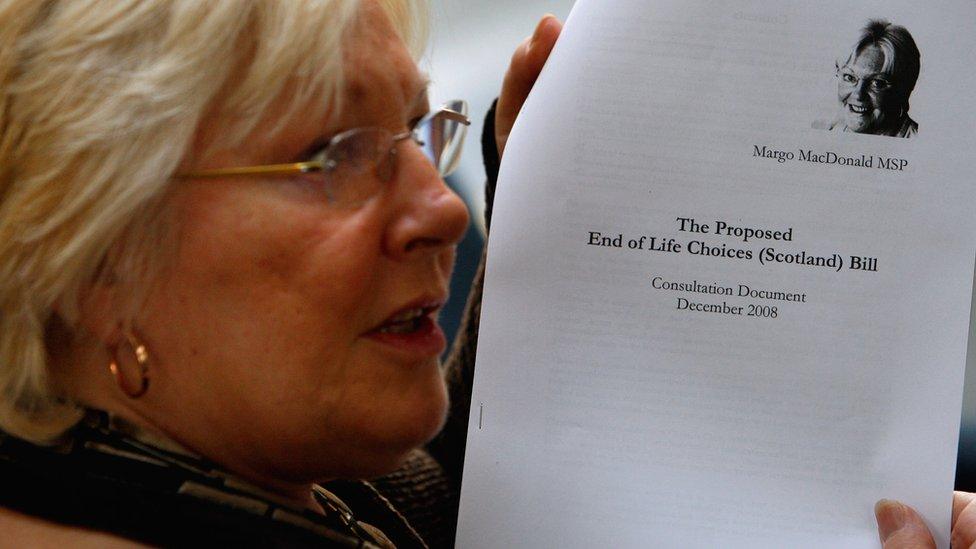
Margo MacDonald MSP, who died in 2014, campaigned for a change in the law
Attempts to change the law on the assisted dying issue were made by the MSP Margo MacDonald, who died in April 2014 after a long fight against Parkinson's.
The idea was put before Holyrood twice, but her bills failed to receive parliamentary backing.
In Scotland, there is no specific crime of assisting a suicide.
Suicide was not historically criminalised in Scotland, so there was no equivalent to the 1961 Suicide Act, which decriminalised suicide in England and Wales but simultaneously criminalised assisted suicide, which can be punishable with up to 14 years in jail.
But it is possible that helping a person to die could lead to prosecution for murder, culpable homicide or reckless endangerment.
- Published2 April 2019
